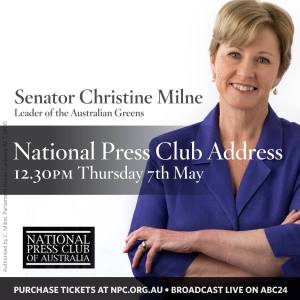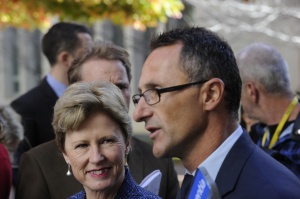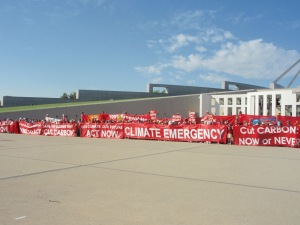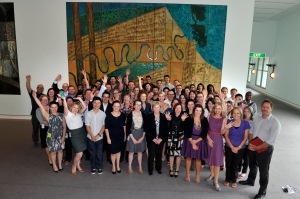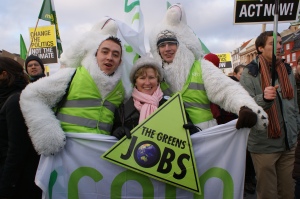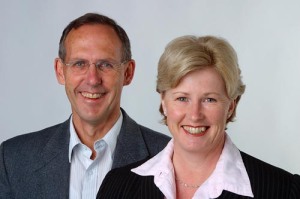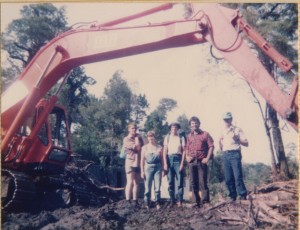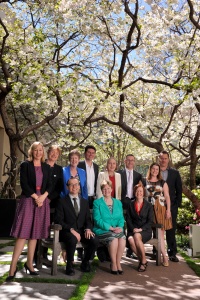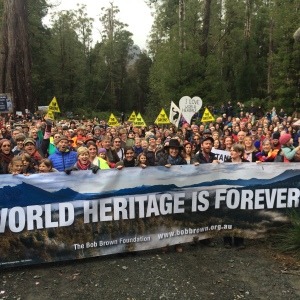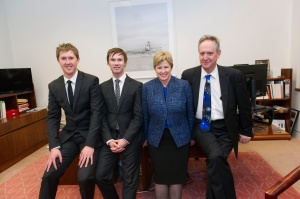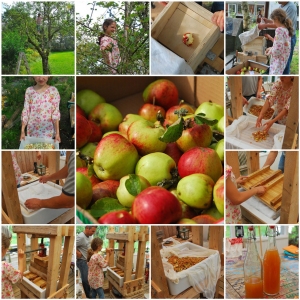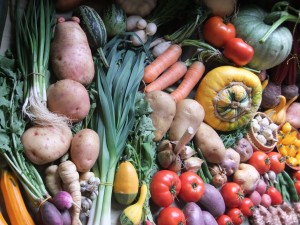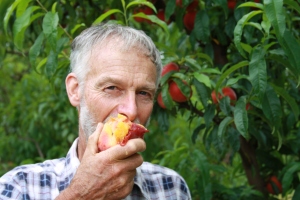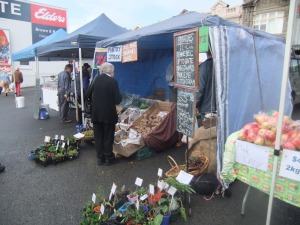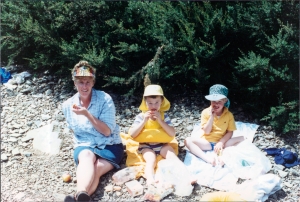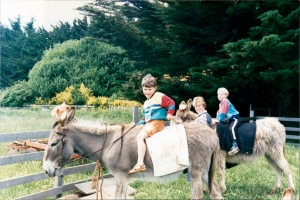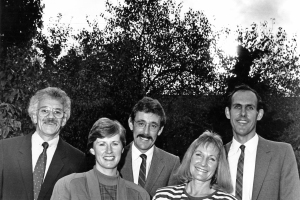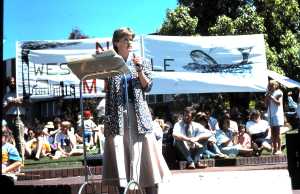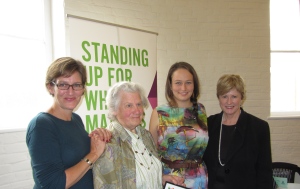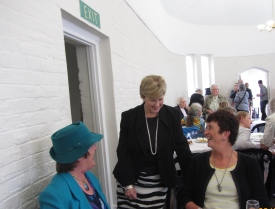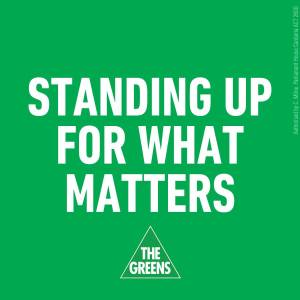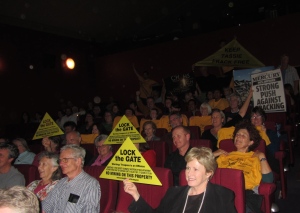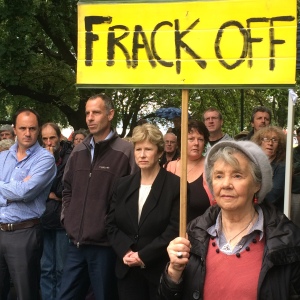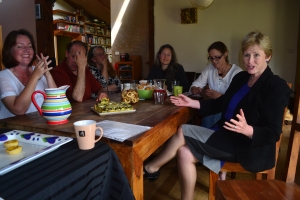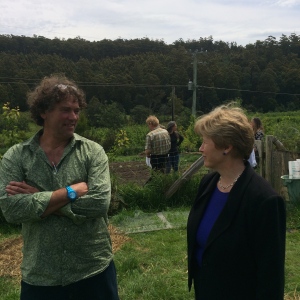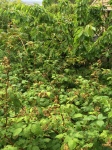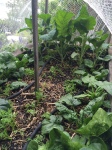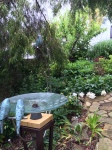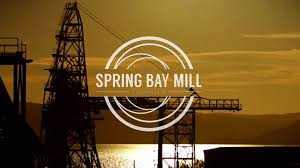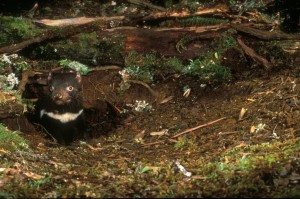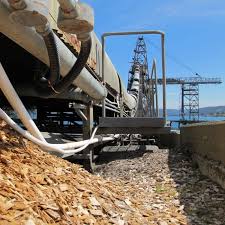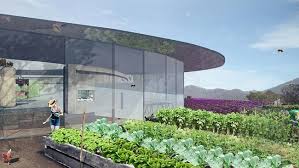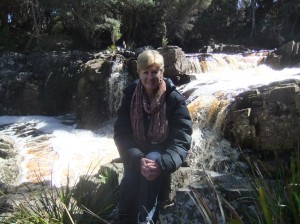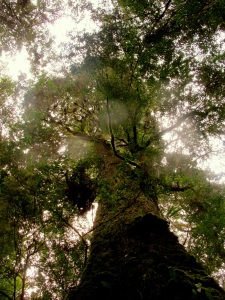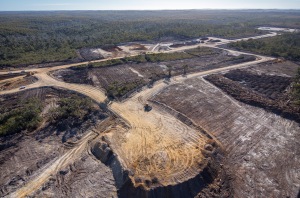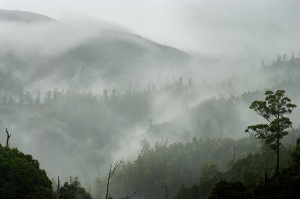I begin by acknowledging the Ngunnawal people, the traditional owners of the land on which we meet and pay my respects to their elders past and present. In doing so I condemn in the strongest terms the Prime Minister’s decision last year to slash $500m from Aboriginal programmes and his decision to back Western Australian Colin Barnett in closing remote communities in WA, claiming they are a ‘lifestyle choice’.
This funding must be restored in this year’s budget. After so long in politics working for the apology, working towards reconciliation, recognition in the Constitution; it is very clear to me that if we are genuine about reconciliation, closing the gap and respecting Aboriginal connection to country, then Australia’s history of forced dispossession must not be repeated. National stories only mean something if they are backed by consistent, philosophical action. That is what it will take to get the recognition in the Constitution that we need for Australia’s Aboriginal and Torres Strait Islander peoples.
This whole episode has been an example of why you need a vision before you deliver a budget.
The budget, more than anything else a Government delivers is a mirror into the values that they hold. Budgets offer insights into both the priorities, and the prejudices, of its writers. If you want to know what people and governments value, then look at how they raise and spend their money. If you want why they raise and spend money, then you have to know what the big picture is and what that money is supposed to be delivering. You need to know what we want Australia to be like in 2050 for example, and that is what is completely lacking with the Abbott Government up until now and almost certainly will be in the Budget that’s upcoming. Money and the market are their drivers and it’s almost as if they think that just pursuing money and market will of itself deliver public policy outcomes.
But I can tell you after all these years it’s pretty clear to everyone that you won’t deliver a 21st century economy, a safe climate, a futuristic public transport system with light rail, freight and high speed connections unless you have a multi-decade plan. You won’t deliver the sort of happy, confident society that Australia wants to be unless you have a multi-decade plan. Handing nations over to the vagaries of markets has proven disastrous.
That’s why it’s absolutely wonderful to be here today, at this moment in time in Australia having just stepped down as Leader of the Australian Greens and in the lead up to the Abbott Government’s second budget. Because, I know that what we are seeing here in Australia what is being seen around the world, and will be seen in the British Election today and that is the death throes of neoliberal economics. The future is now full of possibility and there is no going back. What a great place to be in determining public policy in Australia.
Over three decades my life as an environmental activist and parliamentarian, essentially my life has bookended by the fundamentally flawed and extreme ideological experiment that has been neoliberalism. But it is also that which has lead me to be part of the emergence and growth of Green politics both here and around the world. The era of the environment, with its precious ecosystems, as dispensable fodder for economic growth is over.
As I leave the time is now ripe for the great Green team here lead by the new leadership team of Richard Di Natale, Scott Ludlam and Larissa Waters in the Australian Parliament; the leadership that is being offered in other countries around the world, to drive and implement the raft of ideas and policies that people want. People sense that values, like community and public interest, that they’ve been forced to suppress for so long, made to feel as if they are not worthy aspirations, now have a chance of re-emerging. And I can tell you, revolutions occur not when people are totally ground down. They occur when people start to believe that things can be better, and that’s where we are right now.
As a philosophy neoliberalism has at its heart ‘the market’ which its adherents think should be free from interference from government. Economic growth is paramount. Corporations and their agents need to be free to pursue whatever gives them an economic advantage. As a consequence, domestic and global markets must be free to operate with little or no government constraint or regulation. The hall marks of neoliberalism are free trade, deregulation, privatisation, public spending cuts and small government – and I can tell you, the Trans Pacific Partnership is the extreme expression of the last death throes of neoliberalism and we’d better make sure we prevent it actually coming to fruition.
The ideal market driven world was supposed to solve all social and economic problems we have with the trickle-down effect. How many times are we told just give it to the big end of town, just give it to the market and everyone else will benefit? By maximising self-interest over the community interest, or the common good, everyone was supposed to be better off. What a spectacular failure it has been. A failure environmentally, socially and economically such that only a radical reassertion of government into decision-making gives us any hope.
As Sir Nicholas Stern said in 2006, global warming is the greatest market failure of all time and it continues to be with the science getting worse we are living in a climate emergency. It is a matter of fact not of opinion. Ice sheets are melting, sea levels rising, extreme weather events intensifying, coral reefs are dying and 1 in 6 species are headed to extinction because of it. The market sees the Earth as having infinite capacity to provide resources and life supporting clean air, clean water, uncontaminated soil and an infinite capacity to absorb wastes into its rivers, oceans and atmosphere. This idea that the market considers the very earth we live on as an externality shows you just how flawed this is. It has led to the World Economic Forum identifying food, water, climate and extreme weather as four of its top ten risks in 2014. That is where we are.
The rest are risks associated with income disparity, fiscal failure, unemployment and underemployment and social instability. Even the IMF is now saying that progressive taxation should be more of a focus than regressive sales taxes. But no one is listening in Canberra where insulating the rich has been the focus.
Even after the Global Financial Crisis where failure to regulate the market led to the most massive bailout of all time, it is back to business as usual. Regulating the financial services industry has been largely thwarted. Greed has thrived as every day those who argue that taxes, bailouts, regulations and subsidies are unwarranted restraints on market freedom, simultaneously put their own hands out for all the corporate welfare they can muster. Rescue packages for the loggers, regulation to stop protesters but deregulation to facilitate mines and coal seam gas, cut the RET for aluminium smelters and coal fired generators, abolish the mining tax, pollute for free, keep the fuel tax credits for the big miners, subsidies for oil and gas exploration, avoid any penalties or crackdown on tax avoidance. You can guarantee that when the light is shone on the 55 millionaires in Australia who right now pay no tax, or the 700 richest private companies that want their affairs to remain secret, or the big miners and polluters and their use of tax havens, or the immunity from prosecution for the wealthy, the chorus will be “look over there, the GST. Look over there, don’t look at us. Look over there, the community can pay more with the GST.”
Interestingly, the global wave of innovation that was supposed to result from the last thirty years of neoliberal economic policy has done so, where it has occurred, in spite of neoliberal economic policy, not because of it. If you look at Australia’s largest solar farm, for example, it’s a result of the Clean Energy Finance Corporation. Look to the CSIRO, fantastic innovation, that does not come from small government, that comes from government supporting science. Any innovations that threaten those who profit from old economy environmental and social exploitation are actively opposed. Research and development is slashed, education is denied Gonski funding, universities cash, and effective programmes, social programs, and environmental programs are closed down or rendered ineffective.
All this was done with great fan-fare in Abbott and Joe Hockey’s first budget and first year in government. In fact, the one good thing about the 2014 budget was that it was so transparently extreme, so obviously the naked implementation of the market, right down to the cigar smoking of the Treasurer and Finance Minister, or the list of 75 asks from the Institute of Public Affairs, that no one could miss, no one in the whole country could miss, just how unjust it was. How much it made life harder for people and how dismissive of the environment.
The Prime Minister had no nuancing or disguise, no consultation with anyone who might know or care about education or health or the environment. He imposed the agenda of the mates who had been salivating about it in their two terms in Opposition. Hit pensions, unemployed, students, single parents, cut superannuation entitlements for low income earners, call it a budget emergency, tell people it’s in their best interests to suffer and just plain lie. That’s what they did last year.
The community rallied. The Australian Greens stood with people in every capital city and beyond protested against this madness, this smashing of lives and values.
We are people, not economic units.
We live in a society, not an economy.
We care about one another and our community, our environment, not just bank accounts. And it is with great joy I can say that after the last 12 months, both Prime Minister Abbott and neoliberal economics have been discredited at the same time.
The old order didn’t go down without a fight as they tried to blame the Senate. They called it obstructionist and argued that the Australian Greens should use our power to negotiate a compromise on these abhorrent policies. But, one year on I’m proud to say that the Greens used our power, in unwavering opposition, and forced the government to back down on the pension indexation, university deregulation, and Medicare co-payments. We have saved the Climate Change Authority, Clean Energy Finance Corporation and ARENA. If the ALP had held the line on the Renewable Energy Target we could have forced a back down on that too.
Meanwhile there were senators who were lauded by the neoliberal echo chamber, particularly the Murdoch press, were lauded for doing deals and throwing in their lot with the Abbott Government, boosting mining profits by abolishing the mining tax, allowing the big polluters to pollute for free and handing them over $2.5 billion of taxpayer funds under Direct Action, abolishing the low income superannuation payment and taking $700 million out of the Australian Renewable Energy Agency. If the common good is the benchmark then it was a resounding failure.
So what comes next?
Will the Prime Minister be able to rescue himself with a dull Budget, on the pretext of learning from his mistakes? Will Abbott’s style of neoliberal-lite, cut it this year?
Well I say, not at all.
As Einstein said, you don’t solve problems with the same mentality that created them and let me tell you, the same mentality of governing for the big end of town remains. Rather than governing for the people that elected it, this government treats the market as its primary constituent, demanding that Australians shoulder greater and greater pressures and make more sacrifices.
But it is all in vain because as I say, a revolution is underway.
In his seminal work on the structure of scientific theory, Thomas Kuhn gives insight into why that is so.
He was the scientist who brought about the much used term ‘paradigm shift’.
He challenged the notion of steady cumulative progress and saw discontinuities and revolutionary phases leading to conceptual breakthroughs, which settle down to become the new norm.
Revolutionary phases are preceded by an accumulation of unresolved anomalies to the point where people question the paradigm itself and a period of crisis ensues. In his words
“The proliferation of competing articulations, the willingness to try anything, the expression of explicit discontent, the recourse to philosophy and to debate over fundamentals, all these are symptoms of a transition from normal to extraordinary research”
.. and that’s what is happening now in the broader community. People are expressing discontent.
People are expressing discontent. In the 1950s, the average American CEO was paid twenty-times that of an employee of the firm, a pay ratio that has since exploded to over two-hundred times.[1]
This trend is echoed around the world. With of all global wealth being owned by the 1%. Just 80 people own the same amount of wealth as 3.5b billion others, the poorest 50% of the global population.[2]
The free markets, espoused by Reagan and Thatcher, and the Abbott Government, have enabled the powerful to capture and concentrate wealth at obscene levels, leaving ordinary people voiceless and their interests ignored and their environment destroyed.
Elevating markets, and trusting businesses to regulate themselves resulted in the Global Financial Crisis. However, in scrambling to deal with the disastrous impacts of the crisis, much of the world doubled down on the very orthodoxy that had caused it in the first place. Governments tried to fix the problem with the very policies that had caused it, to disastrous effect.
Governments have to change, and that is where we are now. Anomalies in neoliberal economic outcomes are rife. People see the lies. They want something different.
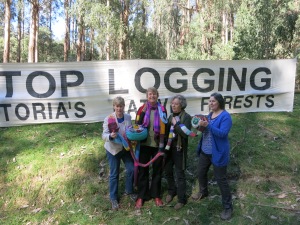 That’s why I say the Greens are set to come into our own. We have been challenging the fundamentals of neoliberal economics from the beginning of our party. We put people, communities and the place we call home, our planet, before the market and individual self-interest. And I am leaving a party that will continue to do that in the Federal Parliament, in state and territory parliaments and right around the world.
That’s why I say the Greens are set to come into our own. We have been challenging the fundamentals of neoliberal economics from the beginning of our party. We put people, communities and the place we call home, our planet, before the market and individual self-interest. And I am leaving a party that will continue to do that in the Federal Parliament, in state and territory parliaments and right around the world.
We say yes to sustaining life on our planet, yes to healthy rivers, oceans, forests, wetlands, reefs and species, yes to regulations and laws that make it happen and no to reducing everything to a dollar value of ecosystem services or the stupidity of offsets.
We say yes to public ownership and and no to the endless cutting of essential services like health, education, public transport, energy transmission and affordable housing to people.
We say yes to government intervention in the market by legislation and regulation in the public interest. And in this government’s pursuit of small governments, another one of the anomalies of neoliberalism, they say small government and then they dole out $3 billion a year to the world’s most profitable mining companies.
So I’m leaving some unfinished business to my colleagues here, in the climate space alone we can shut down coal fired generators now by regulation and set hard and fast limits to greenhouse gas pollution. We can regulate new standards for vehicle fuel efficiency, and we can make new rules for the national electricity market. We can and should save the RET. We can end destruction of the environment by protecting farmland and water and banning fracking and coal seam gas, tight gas or shale gas. We can legislate to stop logging of native forests, and exploitation of fisheries by rapacious trawlers. And we could do all those things in the next few months.
We say yes to Australia being able to determine what’s in our own best interest and not handing that over to multinational corporations as in the Trans Pacific Partnership and other free trade agreements because they are not fair trade agreements. This is the biggest assault on our national sovereignty and Greens are leading the charge in Australia in opposing that assault on our national sovereignty.
And because we support the common good and the public interest, the need to reduce income inequality and wealth inequality is essential. So we support progressive taxation and revenue raising measures that strengthen the social or environmental fabric of our society. That’s what taxes can do. Instead of paying polluters as in Direct Action, what was wrong with giving low income earners a tax break with the rise in the tax free threshold while making the big polluters pay? It made absolute sense.
I’m excited. Humanity is on the cusp of righting itself. The dominant paradigm is under question. People are willing to try new things at a time when global warming and wealth inequality demand a transformation.
We need a wave of social technical and economic innovation that will touch every person community, institution and nation on earth is needed.
It is a call out to everyone to embrace this challenge and bring to it the greatest resource of this century. Imagination. The average age of the team who put a man on the moon was 28. They did what was thought impossible and put a man on the moon in a decade. That’s the scale of the challenge now.
In my 25 years in politics, the one lesson I would say I have learned and would pass on to my team is that you have to do the work in preparation for the time when you have a window of opportunity to act. You can never know when that is but the first person with a good strategy and well researched plan on the table when a crisis or opportunity arises often succeeds. It’s not about the numbers, it’s about knowing what to do and having a plan.
It was my experience in Tasmania with gun law reform after Port Arthur massacre, and in balance of power with the Gillard Government when the Greens achieved the Clean energy package and Denticare and included the Tasmanian forests in the World Heritage Area rounding off 30 years of campaigning for those forests.
The Greens have the philosophy, commitment and track record of being able to be ready when the opportunity arises. And as neoliberalism disintegrates and the world reels from a warming world heading towards 4 degrees, the world will need bright engaged visionary teams of people coming from a values base of community and environment.
That’s why the Australian Greens are it. And are set to deliver in 2016.
People are already showing they are willing to try new things, including voting for what they believe in instead of what they’ve always done. Voting in line with your values in is a way of re-engaging the community especially young people who are tired of neoliberal and neoliberal-lite, and who want to secure their future physically, with employment and addressing the climate emergency. The latest polls show 1 in 4 voters have abandoned the old parties and their neoliberal tendencies and I can tell you the Greens are out there talking to those people.
I cannot tell you how good it feels to have to have gone out hard for 25 years for justice, for the environment and for the community. To have held the line long against the ‘market it god’ philosophy, long enough through thick and thin to now see the Greens develop the policies and culture at a local, state national and global level such that in at least 70 countries in the world the alternative philosophy to neoliberal economics is ready to roll and I’m particularly proud that all that started in Tasmania, my home state, many years ago with the establishment of the United Tasmanian Group.
So many people have contributed to get us to that point. I want to thank them all. Start with the activists who have been prepared to put their bodies and their freedom and well-being on the line from the Lake Pedder campaign, through to the Franklin, the fight for the forests right across the country from Farmhouse Creek to Toolangi, saving farmlands of Wesley Vale, the Tamar Valley and Bass Strait from pulp mills and Gunns. The campaigns against Jabiluka, sand mining, for the Reef, against coal in the upper Hunter and the Bowen and Galilee Basins and coal seam gas from Darling Downs, to the Liverpool Plains to South Gippsland and James Price Point. I say thank you to those activists who are prepared to stand up when the laws do not deliver what the community needs. I say to them, without your courage we the Greens, would not be where we are. But we need to keep it up if the Greens are to be the dominant political and social influence of the next century.
But I say to those activists, Green politics is environmental and social activism. It is Green MPs who are taking the cause to where the decisions are made. Greens MPs are the people who share your passion and values. They are the ones who have a coherent philosophy and voting record and will not sell you out. Backing neoliberalism or neoliberal-lite won’t drive the transformation that you know the natural world needs and society requires. You know how urgent action is, don’t let the future down by advocating a vote for a party or individual who doesn’t share your values. Surely that is what constitutes a wasted vote.
To my voters and supporters in Tasmania, I thank you for giving me the opportunity to represent you and for backing the vision for a clean, green and clever Tasmania. A place renowned for its clean air, clean water and uncontaminated soil and loved and globally appreciated for its wilderness and the creativity that inspires, a place of outstanding universal value to human kind.
I couldn’t be prouder of the role the Greens played in doubling the size of the World Heritage Area through to the inclusion of the forests and the ongoing campaign to protect it to ensure it is there for the future. There’s more work to do in Tasmania but we’re brilliantly placed in a world that is focusing on the Southern Ocean and the science, we are well placed to change our economy to be based on that.
I am stepping down as Leader because now is the time I had to make a decision as to whether or not to stand again for election in 2016. I could not in my heart of hearts promise to represent you for another term. We have always been honest with each other and I do not intend to mislead you now. It is time for generational change and for new energy as to the possibilities for our state and nation which are immense.
To the members of the Australian Greens around the country and to my Parliamentary colleagues, thank you for the privilege of leading this great party. It is a humbling experience to carry the hopes of people for a more caring society and a life sustaining planet on my shoulders and that of my parliamentary team and my staff in Hobart and in Canberra. Over the past three years we have together not only strengthened our national party and our global party, we have built a strong national culture and an exciting direct engagement campaigning strategy with the community which has delivered for us in state elections and we have a wonderful depth of talent in our Parliamentary team all ready to take off, and that will enable the Greens to bring it home for people, and the planet, in the federal election next year.
To my family, my partner Gary, my sons Thomas and his partner Antony, James and his wife Shannon, my mother June who at 91 will be watching with my extended family from North West Tasmania today, thank you for believing that it is possible to change the world and for the support you have given me for so long, for the sacrifices you have all made to enable us all together to do this. I could not have done it without you.
In conclusion, one of my favourite poems, one that has sustained me over the years inspires me now as I embark on the next phase of my life. And I hope it will inspire the Greens as they enjoy this moment in Australian politics when the old neoliberal order is crumbling and what replaces it is being actively imagined in order to give our planet and people a safe climate and future. And I quote:
The surface of the earth is soft and impressible by the feet of men; and so with the paths which the mind travels. How worn and dusty, then, must be the highways of the world, how deep the ruts of tradition and conformity! I did not wish to take a cabin passage, but rather to go before the mast and on the deck of the world, for there I could best see the moonlight amid the mountains. I do not wish to go below now.
The cabin passage is not for me or the Greens, it hasn’t been the passage for Adam and I over the last few years, and it won’t be the passage for my Parliamentary colleagues. I am confident that we will continue to enjoy the moonlight and the mountains from before the mast.
Thank you.
the full video of this speech can be viewed by clicking here

